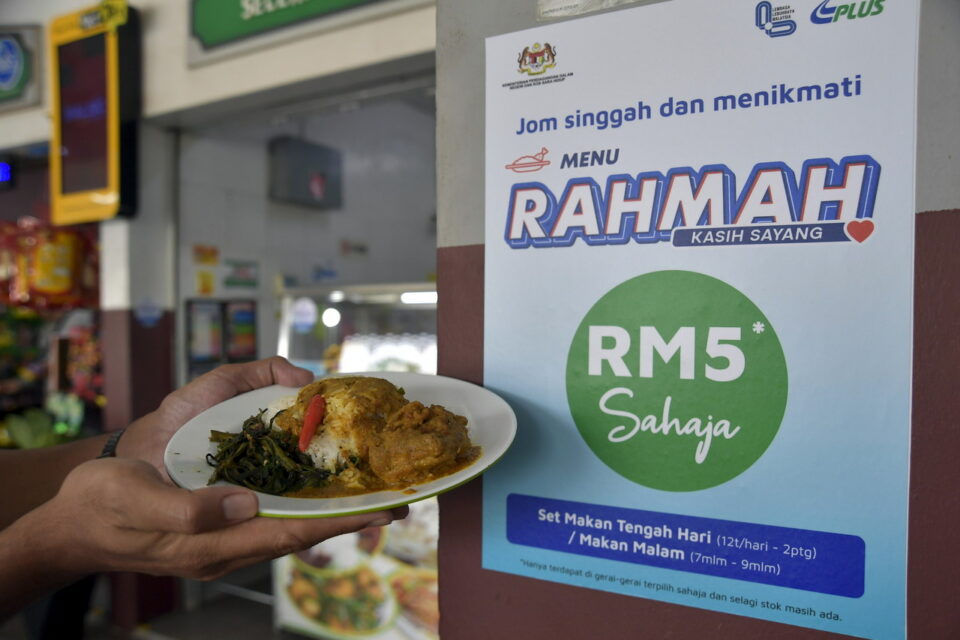PUTRAJAYA, March 6 — Inisiatif Pendapatan Rakyat (IPR) and Menu Rahmah are among the government’s strategic steps to beat food-outside-the-home inflation component, said Economy Minister Rafizi Ramli.
The minister said inflation for food outside the home had improved slightly from 9.6 per cent in December 2022 to 9.3 per cent in January 2023.
“Although for me, the 9.3 per cent in January 2023 is still high, however this is the first time the inflation rate for prepared meals has dropped.
“Meals away from home were driving prices of goods and the inflation rate over the last five to six months, and this is why we are focusing on the Menu Rahmah and IPR,” he said at a press conference on the publication of the January 2023 Consumer Price Index here today.
Rafizi said the government’s steps to implement the two initiatives were intended to influence prepared food prices at the store level, where there would be a balance between consumer demand and the prices set by traders when meals were priced between RM2 and RM5.
“When more food is sold at lower prices, whether through Menu Rahmah or IPR, there will be competition to alleviate the increase in prices of prepared food and food away from home in the upcoming months to help the government curb inflation,” he said.
Rafizi said 22,319 individuals had registered to participate in the IPR since its launch on February 26 and illustrated that the initiative had received encouraging response.
He said 52 per cent of those registered were for the Food Entrepreneur Initiative (Insan), followed by the Agro Entrepreneur Initiative (Intan) at 29 per cent and Services Operator Initiative (Ikhsan) at 19 per cent with Selangor, Johor and Perak registering the most participants.
The minister added that 376 agencies and companies had registered to be off-takers who are prepared to purchase the products from the participants of the IPR programme.
“We were aiming for 100,000 participants within a year, and since we achieved this in a week, this is an encouraging sign for my ministry that we are able to implement this (initiative) widely and successfully.
“If within a week, we have 376 companies offering to place their vending machines or buy the farm products of participants, we hope that the off-takers community under the IPR will be able to grow since the biggest challenge is to find buyers,” he said.
Rafizi said the Economy Ministry would also focus on facilitating discussions between stakeholders such as the state governments and people’s representatives, including members of the opposition, in the 20 poorest districts in Malaysia to expand the IPR.
Among these 20 poorest districts in Malaysia are Tongod, Pitas, Kota Marudu, Beluran, Telupid, Pusa, Nabawan and Kota Belud in Sabah; Jeli, Kuala Krai, Gua Musang and Bachok in Kelantan; and Besut, Marang, Hulu Terengganu, Machang and Dungun in Terengganu, he said.
Rafizi said his ministry would be launching the first IPR Intan venue as early as the first week of April, involving 20 participants on 10 acres in Putrajaya.
The government is targeting for IPR participants to generate a monthly income of RM2,000 so that they can rise above the poverty line.
— Bernama





